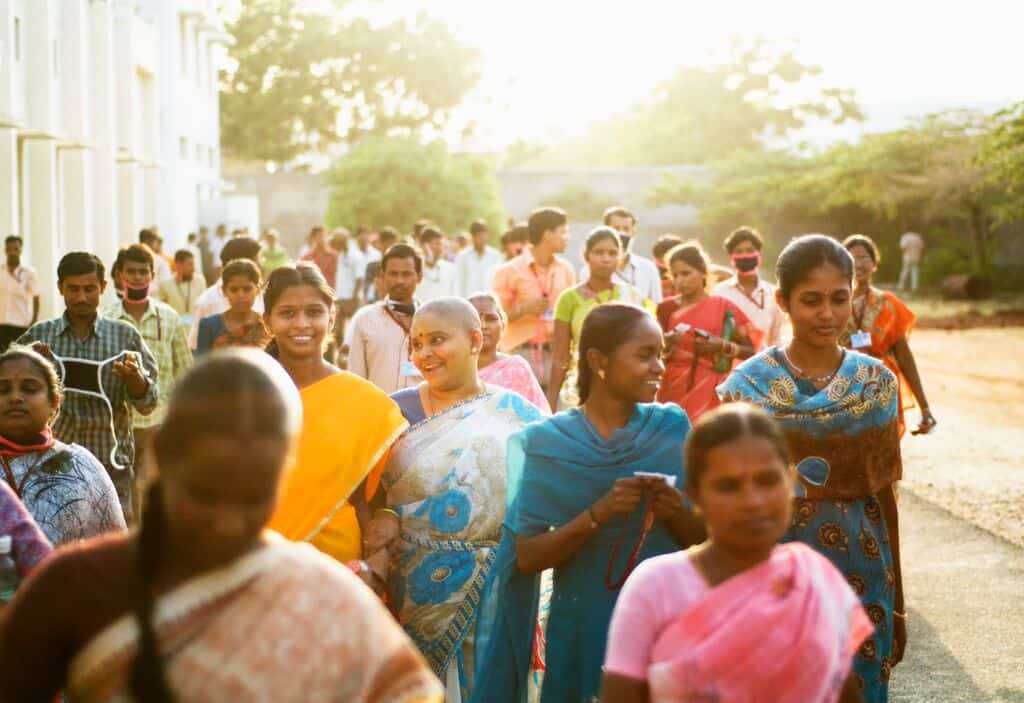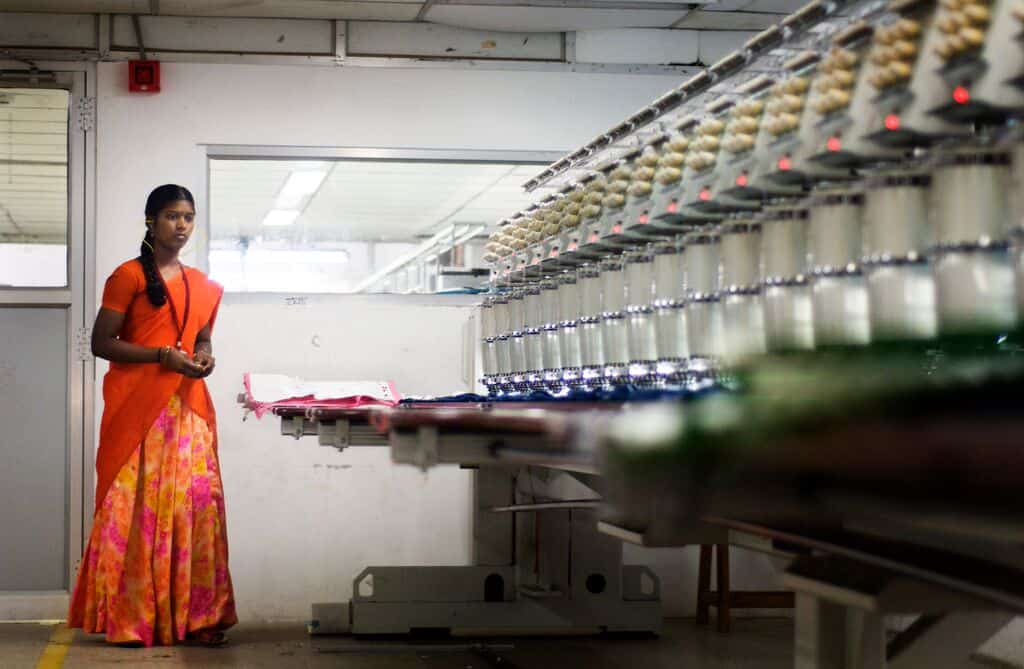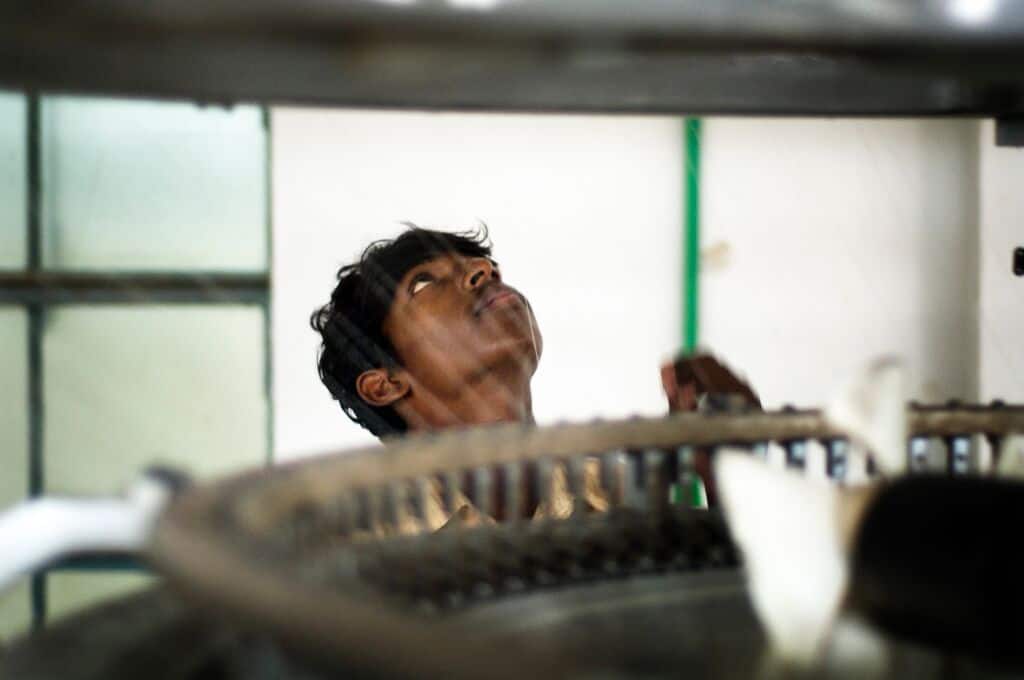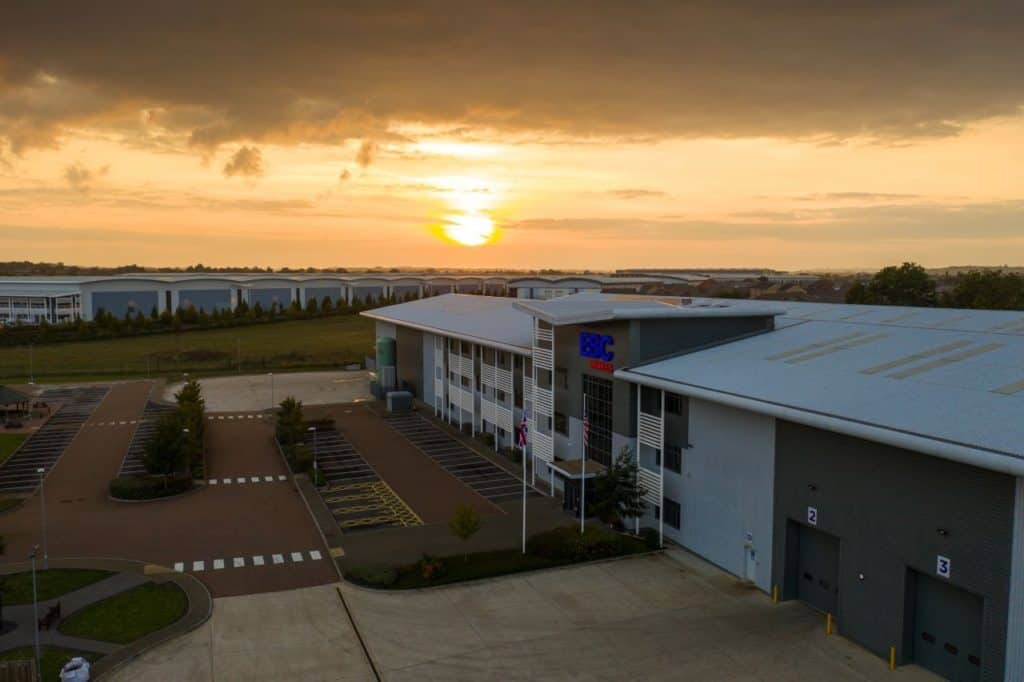Plastic Expert welcomes Sandya Langs, CSR Manager at Nudie Jeans Co, for an interview…
Hi Sandya, what can you tell us about the history of Nudie Jeans?
A passionate independently owned denim company founded in 2001, the three original founders; Maria Erixon, Joakim Levin and Palle Stenberg all still work in the daily business and still own the business. The company has grown a lot during the years and we work hard to maintain the Nudie Jeans feeling in everything we do. Today we are around 50 people working in the HQ.
Has CSR always been a part of Nudie Jeans business philosophy?
To care how and where our products are made has always been a high priority for Nudie Jeans, as well as the choice of sustainable materials such as organic cotton.
What are some of the CSR achievements you’ve experienced?
We have accomplished a lot in the field of CSR especially in the last years, nowadays we have audited and improved conditions in all the factories we work with, including cleaning up in our supply chain and ended some relationships where we couldn’t see any progress in CSR despite several efforts. We have also started programs with paying our share of living wages to factory employees in India.
Can you tell us about the process of changing the cotton supply chain from non-organic to organic?
For the denims we started the transition into organic cotton early, due to the high volumes we have it is now quite easy to demand the suppliers to use organic cotton for our denim fabrics. For the tops (shirt/ jackets/t-shirts) we have also managed to get a lot in organic cotton especially.
When was the decision made to ensure that employees in the manufacturing process would receive a living wage and what has the response been like?
To aim for all employees to have a decent wage has been in the minds since the start, and then all production was made in Europe so it wasn’t really a discussion about living wages as they (employees in Italy and Portugal) have Collective Bargain Agreement and can negotiate their wages. But to make the payments of our share of living wages at our supplier in India, the discussion started in 2011-2012 and in end of 2012 we made the first payments to the employees.
The response from employees has been positive of course, we also received a lot of positive feedback from other brands, some who also produces at the same supplier and now started to join the initiative. That was exactly was we aimed for.
What can you tell us about your work with Fair Wear Foundation and Textile Exchange?
We have a close collaboration with Fair Wear Foundation, they recently had their annual Brand Performance check made at the HQ, where they check so we do our job improving the conditions in the supply chain. The report and ranking of Nudie Jeans will be on their webpage soon. Also with TE we had a great support during the year, we are a support member and we use their services on consultation and advice concerning organic cotton.
What is the Backbone concept and how did some Nudie Jeans come to be made by renewable energy, such as wind power?
The Backbone collection is our basic items, t-shirts, tops and underwear. All made in organic cotton and Fairtrade cotton. They are produced at the factory in India where we pay the living wage bonus, the same factory is also using renewable energy from wind power. So, yes the Backbone collection and other t-shirts made at this factory is made from renewable energy but our jeans are made in Italy and Tunisia (see the production guide) and they don’t unfortunately use wind power as their energy source.
How has employing a dedicated CSR manager allowed Nudie Jeans to progress on their objectives?
To have one person who work full time with the CSR has helped Nudie Jeans advancing in the field of sustainability and making sure we stay ahead of things.
How are old jeans recycled into new denim and other accessories?
We have a service our concept stores where consumer can hand in their old/worn out jeans and get them repaired for free, if they decide to hand them in they receive a discount on a new pair and we can use those jeans for our recycling projects. In some cases, The Rug we can only use dry jeans so we have to separately collect the jeans for different projects. For the production process we collaborate with our suppliers who have the machinery that can make new fibre and fabric of old jeans or the cutting machine and weaving machines for making the rugs.
What are the benefits of using recycled materials in your products?
The benefit is that we reduce our waste, and can make nice products once more of the same material. It shows our creativity and environmental concern in a package.
Some reused jeans are sold in your stores at a discount, how popular has this idea been?
Maybe not as popular as you might think, the second hand jeans stands only for a small part of the sales- I think most of the Nudie Jeans fans want to break in their jeans themselves, and once they did that they don’t want to give them up. But we still want to offer the idea of second hand jeans for those who wants a well-worn pair without having the time or patience to break them in.
How does the Nudie Jeans service work, and how does it encourage CSR? What about the free repair kit?
We try to have a high level of service in the whole company. For example, we always reply to all consumer questions, they feedback from the consumers are very important and it is nice to see the increase of interest for our CSR work. The free Repair Kit is sent to those who needs to repair their jeans but does not have the possibility to visit our concept stores.
Jeans are resilient and versatile, but how long should you expect a pair of jeans to last if they are high quality?
It all depends on how you wear your jeans, and the lifestyle you have. If you are mostly sitting in an office your jeans will last definitely longer than if you are out skating.
What advice would you give to businesses who are inspired to be more like Nudie Jeans?
Get control over and map your supply chain, design your products so it is possible to reuse and recycle, and involve only in projects connected to your core business.
Thanks for sharing Sandya!












